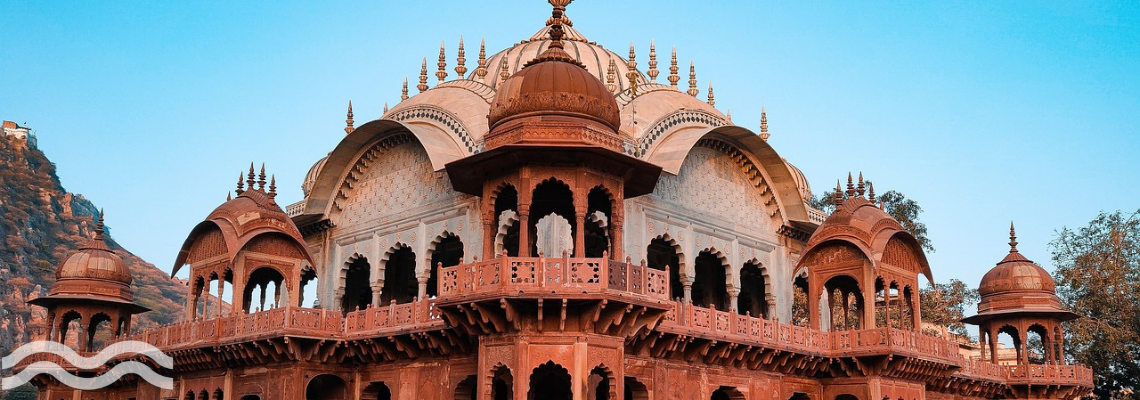Spirit of the desert: Whiskey and water security in Rajashtan, India
Diageo is working with the local community to improve water security in the region of its Alwar distillery, which is based in an arid region of northeast India.
Reducing water waste in a whiskey distillery
Diageo’s whiskey distillery in Alwar was the first to spirit distillery in Asia to receive the Alliance for Water Stewardship (AWS) Certification. The AWS is a framework for sustainability that recognises the actions being taken by companies to manage water scarcity issues by protecting and replenishing local resources.
The plant produces a single malt whiskey called Godawan, which means ‘spirit of the desert’. Its production uses locally grown barley and relies on groundwater. Therefore, the company acknowledged that water waste was not just an issue for its distillery and its workers. It needed to ensure its water use did not negatively affect the 23,000 people who live in the six catchment area villages.
Water challenges in Rajasthan
Rajasthan is in the northeastern corner of India. It covers just over 10 per cent of the total country. As a state it features both fertile plains and the Thar desert. The state has a huge contrast in average annual rainfall from 900-1000 millimetres in the southeast, to just 14 millimetres in the extreme northwest.
Alwar is an arid land which receives much of its water during the short monsoon season. It relies on groundwater for much of its industrial and residential use. The region’s main river, the Ruparail, is rainfed and only replenishes the area during that short monsoon season, with recorded levels in recent years showing a decline. This means the whole region is highly susceptible to climate change.
Collaboration with communities
Brewing uses large amounts of water. Around the world, companies in this area are looking at ways of becoming more sustainable. The company works with community groups and charities to reduce water waste and to maintain the sustainability of the available water sources. These projects include:
• Replenishing over 64 million litres of water annually in partnership with an NGO partner, Gramodaya Samajik Sansthan, through water harvesting programmes.
• Constructing four check dams over 12 miles on the Ruparail river, covering four villages, to regulate water availability for local businesses, communities and the environment, as well as recharging groundwater.
• Improving access to sanitation facilities by constructing over 145 toilets, and the provision of clean drinking water in six villages across Alwar, helping to address gender inequalities.
• Providing the indigenous Bhopa community with access to toilets and washing facilities, improving hygiene and sanitation.
• Planting more than 200,000 trees along the river and in the catchment area, in partnership with the District Forest Department to help conserve water. These trees provide shade which helps to reduce the temperature of the river water, and their roots help to reduce soil run-off during the heavy monsoon rains.
Meeting Diageo’s 10-year environmental plan
Diageo has said it is putting responsibility at the core of its business strategy, producing a 10-year Environmental, Social and Governance (ESG) action plan. Called Society 2030: Spirit of Progress includes a section called Grain to Glass Sustainability and a pledge that: ‘By 2030, every drink we make will use 30% less water than today and by 2026 we will replenish more water than we use in all our water-stressed areas.’
Among its other water targets, the company has committed to:
• Reduce water use in our operations with a 40 per cent improvement in water use efficiency in water stressed areas and 30 per cent improvement across the company.
• Replenish more water than we use for our operations in 100 per cent of sites in water-stressed areas by 2026.
• Invest in improving access to clean water, sanitation and hygiene (WASH) in communities near our sites and local sourcing areas in all of our water-stressed markets.
• Engage in collective action in all priority water basins to improve water accessibility, availability and quality and contribute to a net positive water impact.The plan also commits to halving the carbon in the company’s supply chain.
Share your water technology stories with us
Do you have an innovation, research results or an other interesting topic you would like to share with the international water technology industry? The Aquatech website and social media channels are a great platform to showcase your stories!
Please contact our Sr Brand Marketing Manager Annelie Koomen.
Are you an Aquatech exhibitor?
Make sure you add your latest press releases to your Company Profile in the Exhibitor Portal for free exposure.
We promise never to send you spam and you can unsubscribe at any time!
